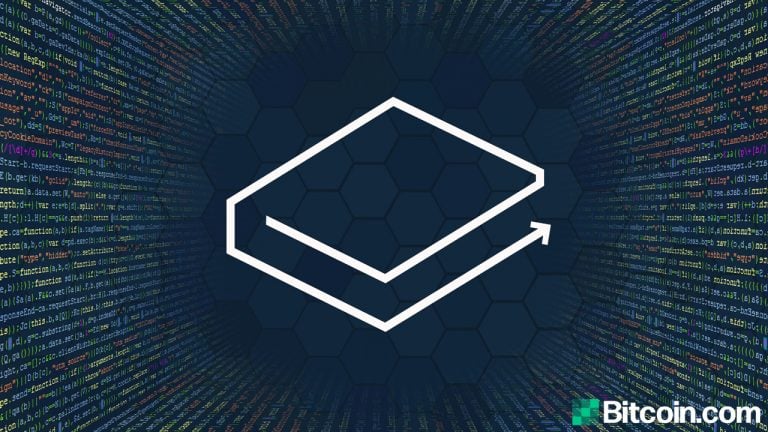 A new report shows that U.S. regulators have imposed fines and penalties totaling $2.5 billion on crypto firms and individuals so far. The U.S. Securities and Exchange Commission (SEC) has imposed the most fines, followed by the Commodity Futures Trading Commission (CFTC). Meanwhile, the U.S. Treasury’s Office of Foreign Assets Control (OFAC) is the latest […]
A new report shows that U.S. regulators have imposed fines and penalties totaling $2.5 billion on crypto firms and individuals so far. The U.S. Securities and Exchange Commission (SEC) has imposed the most fines, followed by the Commodity Futures Trading Commission (CFTC). Meanwhile, the U.S. Treasury’s Office of Foreign Assets Control (OFAC) is the latest […]
Do NFTs qualify as securities? Redditors debate the issue after Top Shot collector sues Dapper Labs for allegedly selling NFTs as unregistered securities.
A platform user is suing Dapper Labs and CEO Roham Gharegozlou for allegedly selling NFTs as unregistered securities.
Plaintiff Jeeun Friel served Dapper Labs with a summons last week, ordering the firm to respond to a complaint alleging the company sold unregistered securities through the NBA Top Shot marketplace — in the form of its tokenized NBA highlight collectibles.
The plaintiff also alleges that NBA Top Shot intentionally prevented collectors from withdrawing funds for “months on end” to artificially prop up the market value on the platform — pointing to a CNN article from April titled “NBA Top Shot customers can’t get their money out. Experts are confounded.”
The outcome of the lawsuit may be decided by the Howey Test — which determines whether a financial transaction qualifies as an “investment contract” and therefore considered a security.
According to U.S Securities and Exchange Commission, or SEC, an investment contract “exists when there is the investment of money in a common enterprise with a reasonable expectation of profits to be derived from the efforts of others”
A factor that may weaken the case is that the plaintiff does not allege that Dapper Labs promoted the NFTs as investment assets, with the firm's user agreement requiring collectors to agree that they “are using NFTs primarily as objects of play and not for investment or speculative purposes.”
The plaintiff does allege, however, that the platform led investors to “expect profit” from its marketing materials which hyped the success of the platform, along with its in-built scarcity for some NFTs which are highly valuable and fetch six-figure sums.
According to data from Cryptoslam, NBA Top Shot’s secondary peer-to-peer market hosts more than $900,000 worth of trades daily, according to a 30-day rolling average.
News of Dapper Labs being sued sparked a spirited debate in the r/nbatopshot subreddit.
User “nftaddct” noted they personally “don’t feel like Moments are securities”, however, the court might not view it that way:
“Securities have a broad definition. Apparently, Roham himself referred to "investing in Moments" during some of the office hours. This was pointed out in a thread over the weekend.”
Redditor “WhyAlltheHubbub” who claimed to be a “lawyer, but not a securities expert” commented:
“I’d be shocked if legally these are classified as securities. That said, the ability to pursue discovery and see if there is anything nefarious going on related to slowing the withdrawal process would be interesting.”
Redditor “FartyMcPoopyBalls” noted that securities claim may fall short as the platform “has never marketed their NFT’s ability to turn a profit. They have always spoken in terms of collectibility, and the comparison of Top Shots to trading cards has always been made.”
Lewis Cohen, co-founder of the blockchain-focused boutique law firm, DLx Law told Forbes regardless of the outcome, this case could set a precedent for other NFT marketplaces in the future:
“If this is the new standard for ‘investment contracts’ there are many other businesses out there that should start worrying.”
Dapper Labs has 30 days to respond to summons and are yet to publicly comment on the allegations.

A U.S. district has rejected a lawsuit alleging that Bibox sold unregistered securities because the lead plaintiff last traded the tokens in question more than 12 months ago.
A lawsuit accusing crypto exchange Bibox of selling six unregistered securities was thrown out of a U.S. District Court after Judge Denise Cote ruled the plaintiff had failed to file the complaint within 12 months of trading the tokens.
Plaintiff Alexander Clifford filed the class-action complaint on June 3, 2020, seeking to recover investments he previously made into Bibox’s native BIX token, in addition to Eos (EOS), Tron (TRX), Aave (LEND), and Aelf (ELF) on behalf of other investors.
The lawsuit alleged that Bibox had selectively withheld information from investors to conceal that the tokens comprised unregistered securities while facilitating trade in the assets during October 2017. The lawsuit emphasized Bibox’s apparent failure to register its BIX token with regulators.
However, the case was tossed out with relative ease on April 16, with the judge noting that Clifford's final BIX transaction was conducted around December 2018 — outside of the 12-month deadline for securities claims.
“Plaintiff’s claims regarding BIX are dismissed as barred by the statute of limitations,” Judge Cote said.
The judge also noted that the lead plaintiff lacked standing on the claims against the other five tokens as Clifford had only traded BIX and failed to show how other class members had any injury caused by the sale of the other tokens.
“The plaintiff has not alleged that he suffered any actual injury from the conduct of the defendants regarding the five tokens he did not purchase.”
The initial lawsuit was filed amid a wave of complaints filed from law firm Roche Freedman in 2020, with the firm alleging securities violations on the part of the several top crypto exchanges and token issuers, including KuCoin, Block.One, and Tron Foundation.
While several of Freedman’s complaints have been rejected by the courts, its lawsuits against Binance and Bitmex operator HDR Global are still ongoing.
 The Securities and Exchange Commission (SEC) has filed a complaint against the blockchain-based file-sharing and payment network called Lbry last week, as the U.S. regulator has accused the company Lbry Inc. of selling unregistered securities. However, the CEO of Lbry denies the project’s native tokens are securities and says the SEC’s logic will put a […]
The Securities and Exchange Commission (SEC) has filed a complaint against the blockchain-based file-sharing and payment network called Lbry last week, as the U.S. regulator has accused the company Lbry Inc. of selling unregistered securities. However, the CEO of Lbry denies the project’s native tokens are securities and says the SEC’s logic will put a […]
LBRY is in the SEC’s firing line for selling unregistered securities. It claims the case could set a precedent that would affect much of the industry.
Blockchain company LBRY, Inc. has hit back at the Securities and Exchange Commission, saying a complaint filed against it threatens much of the crypto industry because it would define most tokens as securities.
The SEC has been looking into the blockchain-based publishing platform LBRY, Inc. as part of a three-year investigation that started in May 2018.
According to the complaint filed by the SEC, the platform is alleged to have sold unregistered securities across multiple avenues including to institutional investors and platform users between 2016 and 2020.
The regulator is seeking a permanent injunction to prevent the company from selling more tokens, disgorgement of all funds received with interest, and to pay an undisclosed amount in civil penalties.
LBRY developed a decentralized video sharing platform called Odysee that allows viewers to “earn cryptocurrency for watching videos” and for creators to earn LBRY Credits for their work. Since 2016, 13 million LBC tokens were sold for $5 million in Bitcoin. A press release from the SEC states the total amount raised was $11 million, including USD and services from purchasers who participated in its offering.
According to LBRY, while it did not conduct an initial coin offering (ICO) and the SEC is not alleging fraud, its attempts to settle have been rejected by the Commission:
“The SEC declined to offer any terms that would have made it viable for U.S. citizens to exchange tokens or to allow LBRY Inc to continue to operate. We were willing to give them a pound of flesh, but they were only interested in our head.”
Despite already spending “more than $1 million on legal fees” and the momentous effort of “several thousand hours of team members' time” during the investigation, the company is not backing down, stating: “The SEC is advancing an aggressive and disastrous new standard that would make almost all blockchain tokens securities.”
“Classifying all actively-developed blockchain tokens as securities will be a bureaucratic nightmare for United States residents and businesses operating in the US.”
A petition on its website “helplbrysavecrypto.com” with more than 6,700 signatures to date calls on “the SEC to drop this case and establish clear standards for the cryptocurrency industry in the United States.”
HELP US SAVE CRYPTO IN THE USA
— Odysee (@OdyseeTeam) March 29, 2021
The entire future of crypto in US is at risk.
The SEC are suing us and saying LBC is a security - it’s not! This impacts every token!https://t.co/P26tQatXht#helplbrysavecrypto pic.twitter.com/sgbeoxNMMC
LBRY claims that when it asked the SEC how it could operate legally, it was told that the regulatory body could not advise on that and could only say that they were breaking the law.
However the firm stated that should the SEC succeed in shutting down LBRY, Inc., the LBRY platform and ecosystem will remain unaffected as it is fully decentralized with “hundreds of people across six continents,” most of which are not LBRY employees, contributing to the network in 2020.